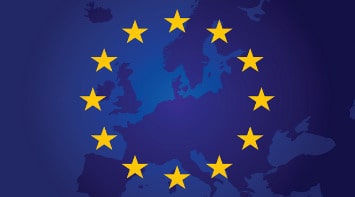When Britain voted to leave the European Union on June 23, 2016, pro-EU commentators warned that a eurosceptic domino effect could drive other countries to follow suit.
But Brexit did not prove to be the pandora’s box that many European bigwigs feared, and no other member state has since made plans to leave the bloc.
COVID-19 wrought havoc on the economies of many European countries who have since depended on EU recovery funds in the wake of the pandemic, and Vladimir Putin‘s invasion of Ukraine has been instrumental in fostering solidarity between EU states to levy economic sanctions against Moscow and send arms to Kyiv.
Nevertheless, euroscepticism is still very much alive and well across the continent, with Jimmie Akesson, the leader of Sweden’s second largest political party, writing this week that there are ‘good reasons to seriously re-evaluate our membership in the union’.
And even some of the EU’s most powerful and long-standing members continue to harbour their fair share of doubts over the involvement of the bloc in their nations’ affairs.
